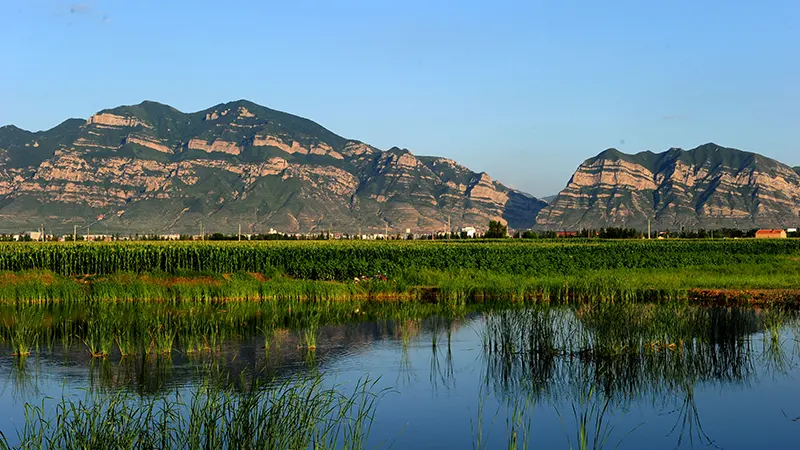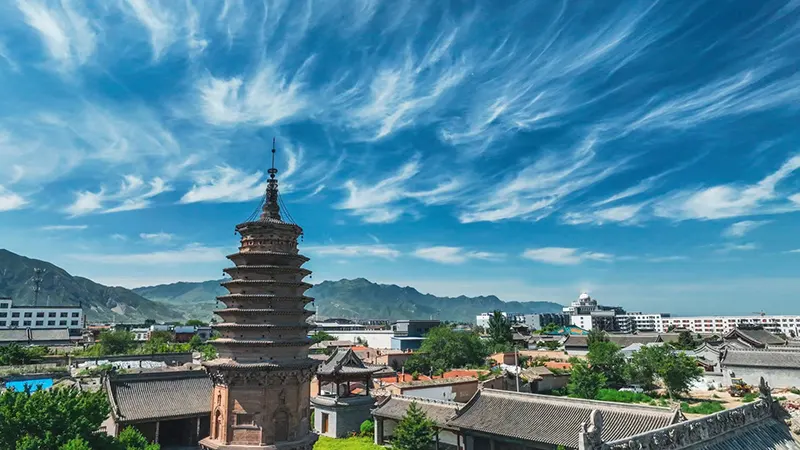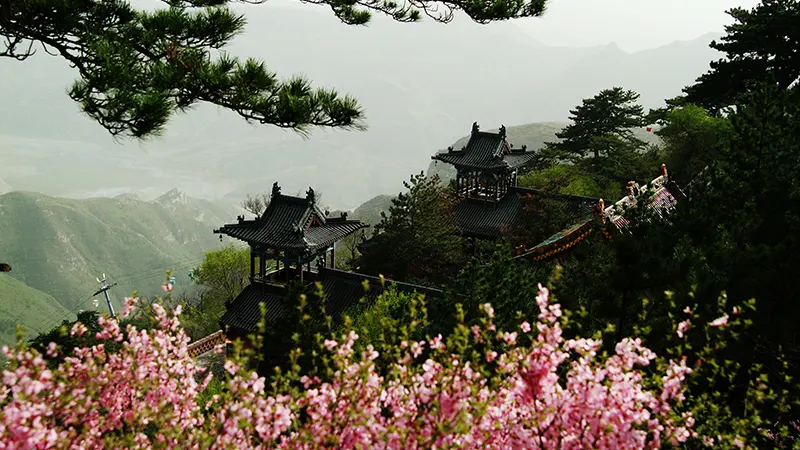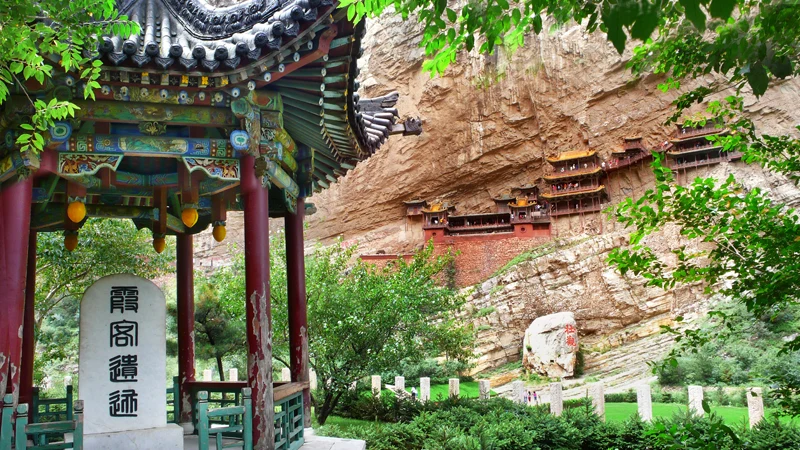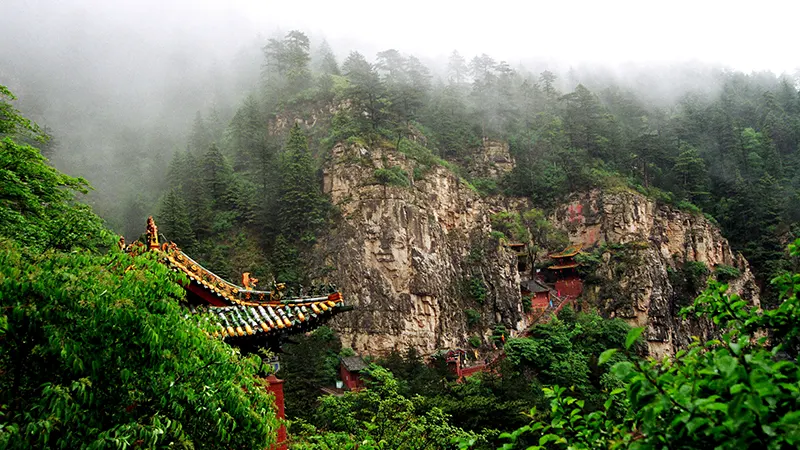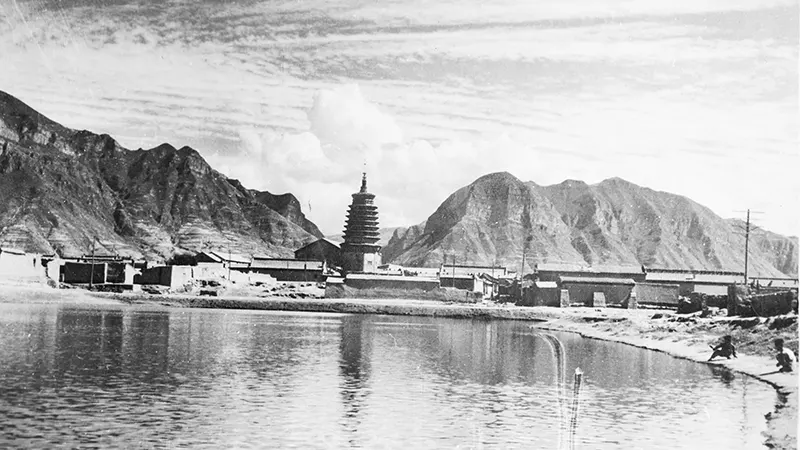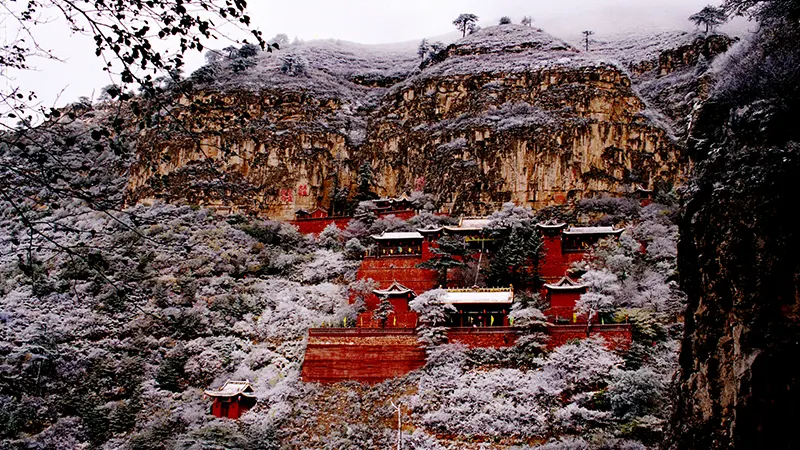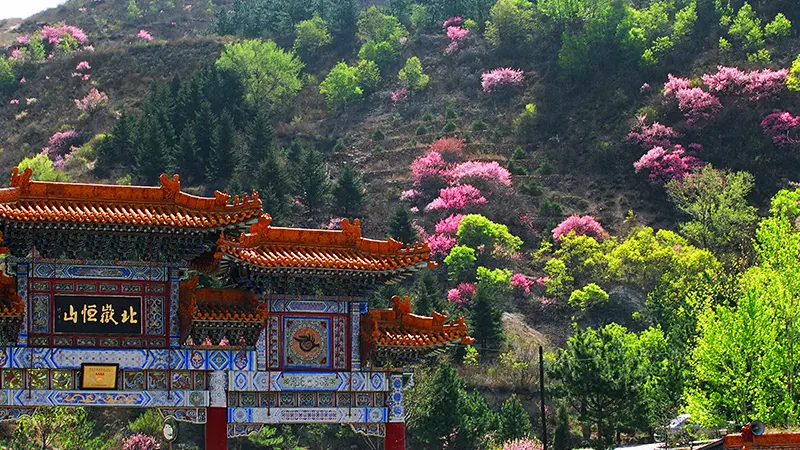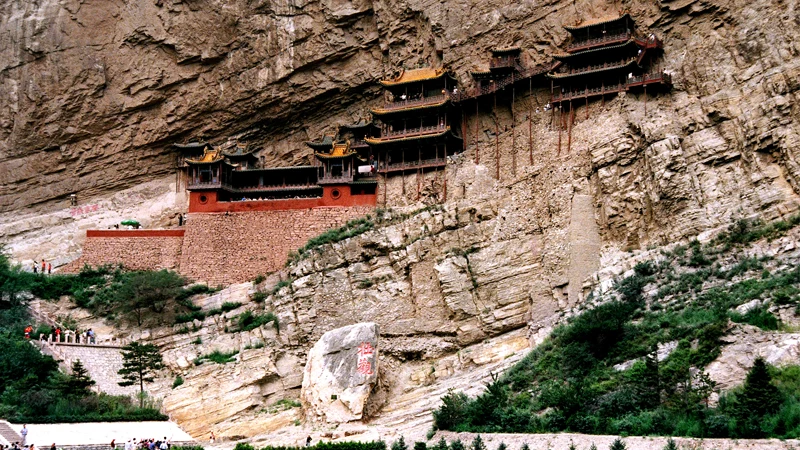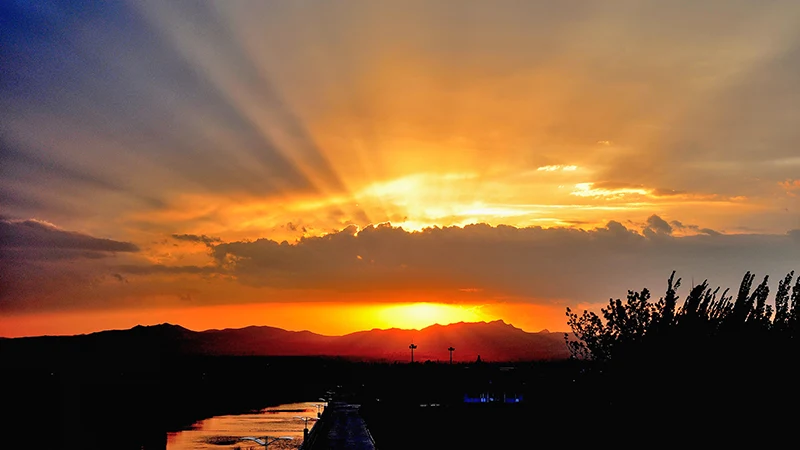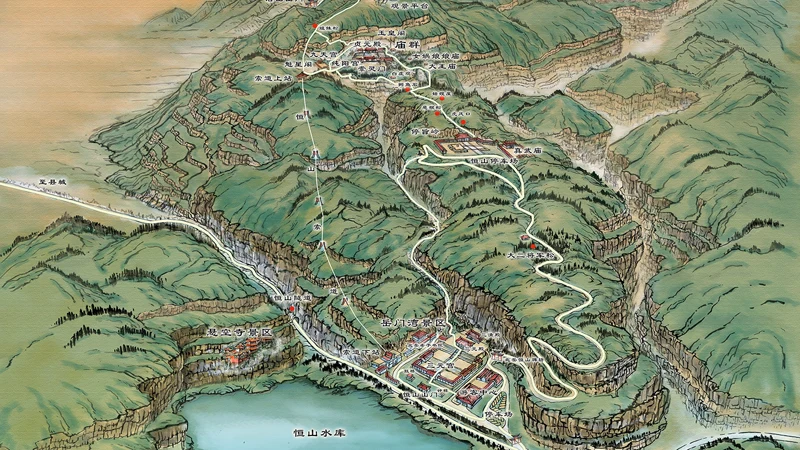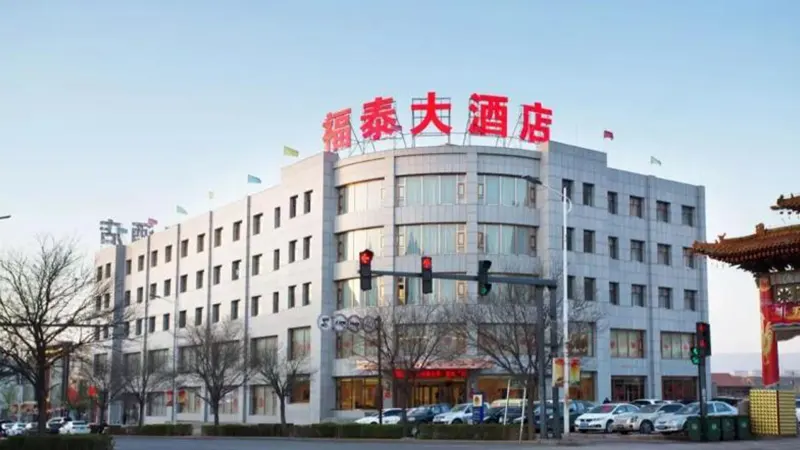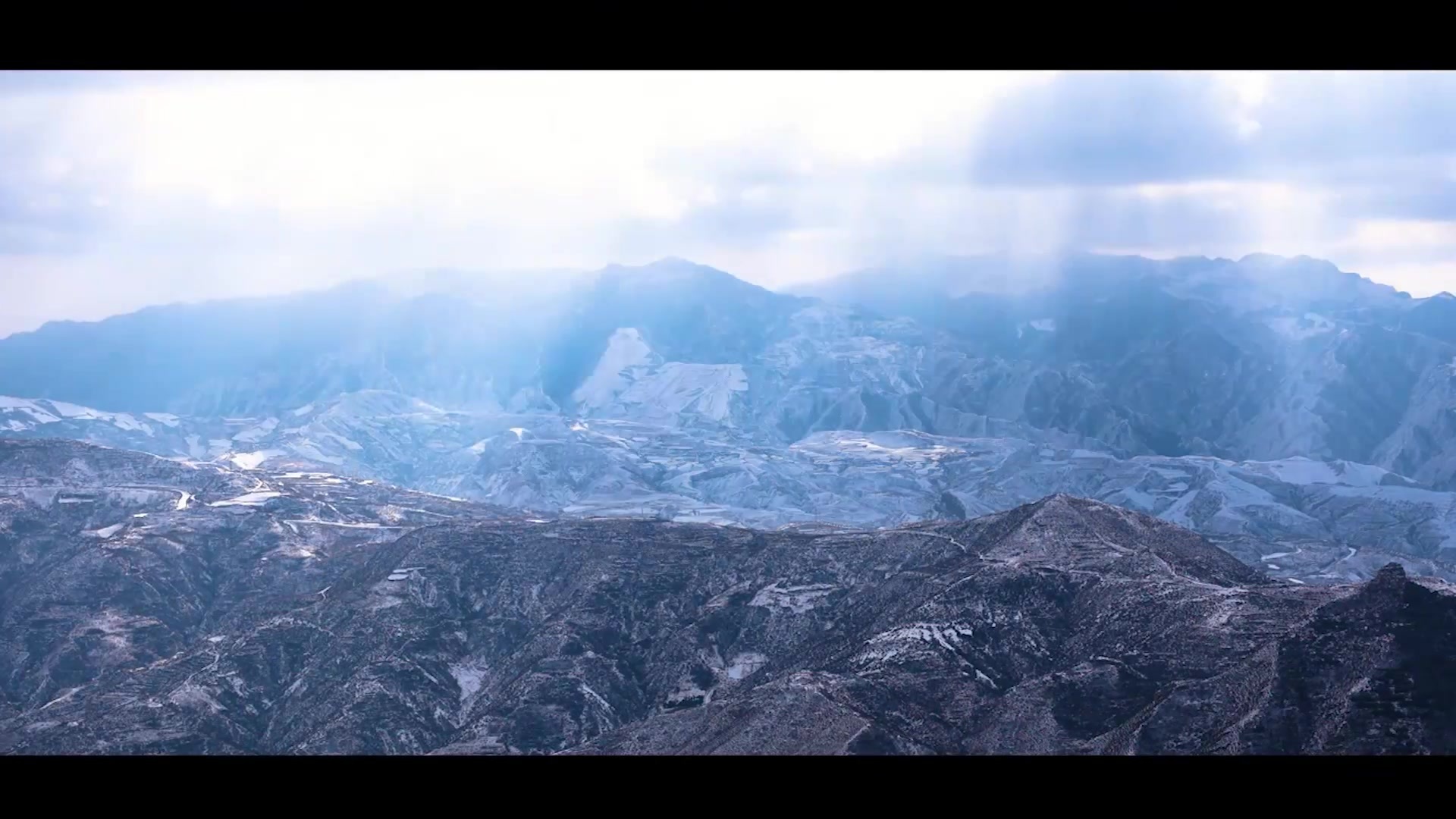The 2025 Hong Kong Wuxia-themed Shanxi Music Performance "Fragrant Hong Kong, Rhyme of Jin Dynasty" premiered at the Hanging Temple.
Publish Time:
2025-06-10 11:10
Source:
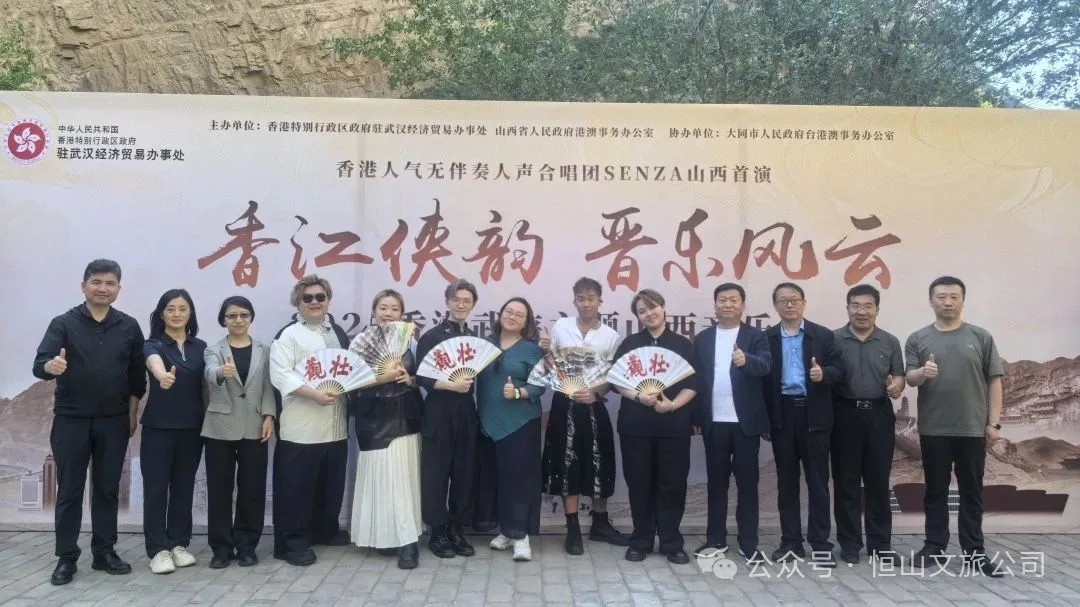
On the afternoon of June 8th, the 2025 "Fragrant Hong Kong, Jin Melody Cloud" Hong Kong Wuxia-themed Shanxi music performance, hosted by the Hong Kong Special Administrative Region Government's Economic and Trade Office in Wuhan and the Shanxi Provincial People's Government's Hong Kong and Macao Affairs Office, and co-organized by the Datong Municipal People's Government's Taiwan, Hong Kong and Macao Affairs Office, was held at the Hanging Temple, the number one scenic spot of Hengshan Mountain. This was also the premiere of this themed music performance in Shanxi.
The Hanging Temple, built over 1500 years ago in the late Northern Wei Dynasty, is a rare example of ancient wooden architecture built high on a cliff face. It embodies the essence of ancient Chinese architecture, reflecting the unique cultural charm and architectural style of the East. It is an outstanding representative of ancient Chinese civilization and Eastern culture. It is famous for the "uniqueness" of its architectural design and location, the "thrill" of its structure, and the "elegance" of its overall shape. Its unique "three religions in one" culture is an important part of the Hengshan Mountain cultural heritage. Its architecture is neither at the peak nor at the foot of the mountain, cleverly nestled into the cliff face, resembling both an exquisite bas-relief and a fairy palace seemingly floating in mid-air.
The Hanging Temple is also the most important activity location in Jin Yong's Wuxia novel "Smiling, Proud Wanderer," besides "The Peak of Enlightenment" of the Hengshan School. When Linghu Chong became the head of the Hengshan School, the Abbot Fangzheng of Shaolin Temple and the head of Wudang, Chongxu Daozhang, visited. The classic scene of Linghu Chong making plans with Abbot Fangzheng and Chongxu Daozhang at the Hanging Temple has made this temple a sacred place in the hearts of countless Wuxia fans. Therefore, the Hanging Temple became the premiere venue for the 2025 "Fragrant Hong Kong, Jin Melody Cloud" Hong Kong Wuxia-themed Shanxi music performance.
During the event, The SENZA a cappella group from Hong Kong, with their unique and moving singing, performed classic songs to perfection. SENZA's rendition of "A Laugh from the Vast Ocean" took the audience to the Wuxia world with its heroic melody; "Under the Lion Rock" conveyed a spirit of struggle; "I Like You" resonated emotionally; and Cantonese pop songs and original works such as "Sing Until My Voice is Hoarse" and "Catching a Thief" won enthusiastic applause from the audience with their novel style and wonderful performance.
About the Hong Kong SENZA A Cappella Group
All five members of the Hong Kong SENZA a cappella group appeared at the Hanging Temple event. SENZA A Cappella With its unique a cappella format, allowed tourists to experience its unique ensemble style and performance charm. When their voices echoed between the semi-enclosed cliffs of the Hanging Temple, it was as if time stood still. The natural sound reflection field added an ethereal reverberation to the harmony, making each note seem to come alive, leaping and echoing in the air.
SENZA A Cappella is Hong Kong's premier a cappella group, founded in 2009 by students from Hong Kong Baptist University. The name comes from the Italian word "senza" (meaning "without"), perfectly embodying its "no instrumental accompaniment" musical philosophy. Initially based on campus, the members came from different disciplines, and with diverse musical styles (including pop, jazz, classical, and musicals), they quickly rose to prominence, gradually moving from campus to the international stage.
Core Members and Performance Characteristics. The group currently consists of five members: soprano Liang Siyuan (Miri), baritone Zhou Jinyi (Jax), tenor and beatboxer Fu Jiajun (Calvert), alto and beatboxer Luo Langqiao (Peace), and bass and beatboxer Lin Jinghao (King). They are skilled at using pure human voices to simulate instrumental sounds, such as creating rhythms through beatboxing, while incorporating harmony arrangements and improvisation to create a unique "vocal symphony" effect.
Musical Achievements and Representative Works. The group's musical works include covers of classics and original songs. In 2020, their two hit songs, "I Reach Out and Hug Myself" and "Limited-Time Dynamic," broke into the mainstream music scene, making them the first a cappella group in Hong Kong to be nominated for the Jade Solid Gold Best Song Award and the "My Favorite Group" award. In 2021, their debut album "Circle of Fifths" quickly sold out and was nominated for the 15th Freshmusic Awards "EP of the Year" and "Best Creative/Singing Group." In 2024, they released their second album "Without," which includes original works such as "Sound Recording," "Double-Sided Project," and "Night Parade of a Hundred Ghosts," and collaborated with several other Hong Kong a cappella groups on "A Short Life (All in One Version)." Their cover songs are also very popular, such as their collaboration with AGA on "Mad x 3AM Medley," with Lin Haifeng on "Shoe Number Nine," and Wuxia-themed adaptations such as "A Laugh from the Vast Ocean" and "Two Forgetful Waters." Their YouTube channel has over 8.5 million views, and their annual "Annual Hong Kong Music Medley" has become an annual event eagerly anticipated by fans.
Performance Experience and Influence. SENZA is active on stages in Hong Kong and mainland China, having held concerts in large venues such as the Hong Kong Coliseum, MacPherson Stadium, and Wuhan Qintai Concert Hall. The group is also actively involved in cross-border collaborations, such as recording backing vocals for singers such as Hins Cheung, Kay Tse, and G.E.M., and participating in major events such as the Hong Kong Film Awards and the Jade Solid Gold Top 10 Awards. Their performances have also taken them to Japan and Singapore, and in 2016, they won the Best Arrangement Award (Jazz) at the Singapore AKA A CAPPELLA Music Festival.
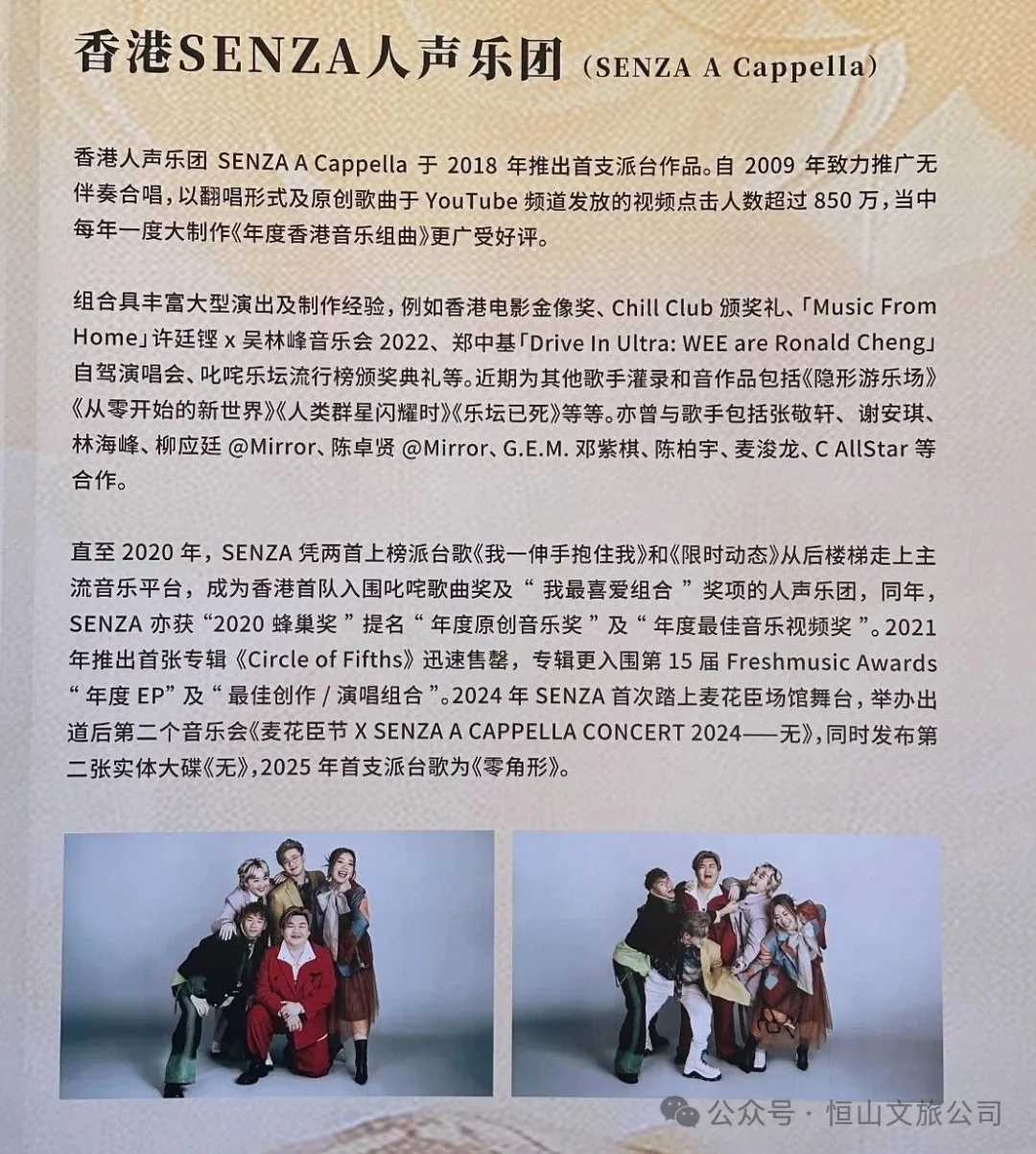
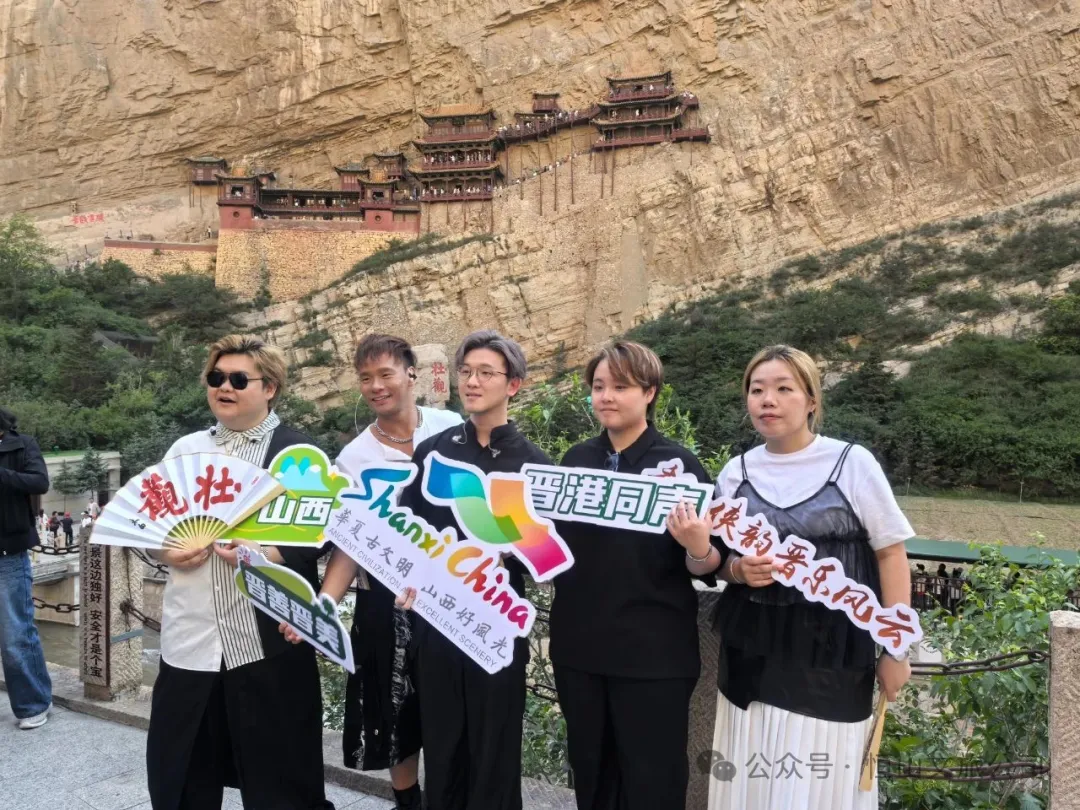
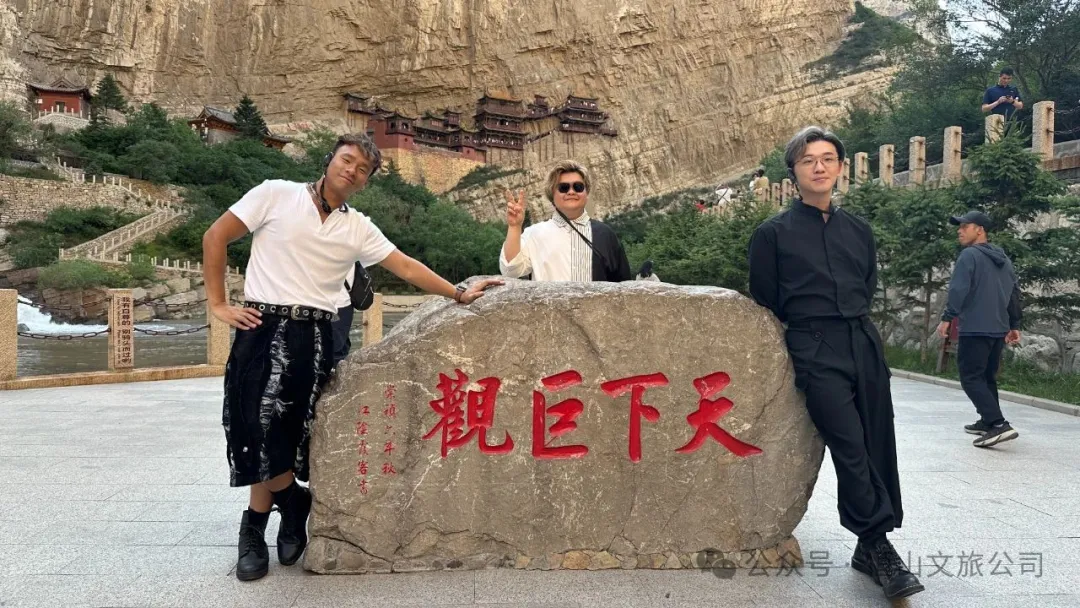
"Smiling, Proud Wanderer" Hengshan School's Wuxia Legacy: The Connection Between a Mountain and the Jianghu
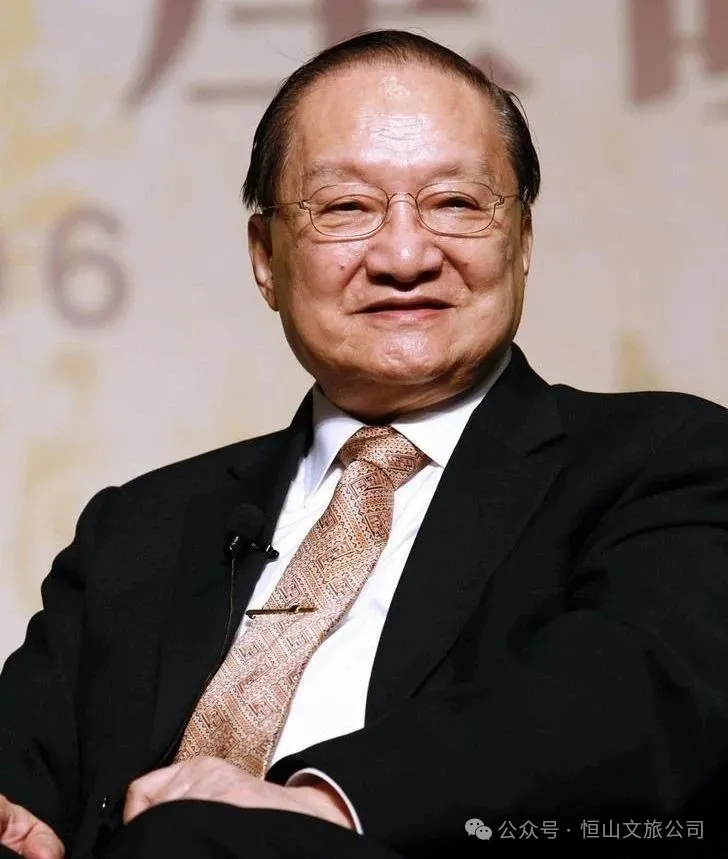
About the Hanging Temple
"Linghu Chong led Abbot Fangzheng and Chongxu Daozhang down from the Peak of Enlightenment, towards the magnetic kiln mouth, and arrived at the foot of Cui Ping Mountain. Fangzheng and Chongxu looked up, and saw two pavilions standing on the peak, like fairy palaces appearing in the clouds. Fangzheng sighed: 'The person who built this pavilion truly had a wonderful imagination, truly there is nothing difficult in the world, only those who are determined.'" This is the first appearance of the Hanging Temple in "Smiling, Proud Wanderer." Although it appears later in the story, it later becomes a rather important location.
Just as the peak of Jianxing is not actually the main peak of Hengshan Mountain, Hanging Temple is not, as described by Jin Yong, "standing on the top of the peak," but rather suspended on the cliffside, more perilous than Jin Yong's description suggests. This is particularly important for fans of Jin Yong's "martial arts geography": one should not arbitrarily speculate on Jin Yong's intentions, but should also respect basic facts to avoid spreading misinformation.
“For ordinary people, when they ascend and look around, they see nothing but emptiness, clouds rising from their feet, as if they were in heaven, inevitably causing their hearts and minds to tremble, and their limbs to become weak.” But for first-rate masters like Linghu Chong, Fang Zheng, and Chongxu, it was “a magnificent view that broadened their chests.” Hanging Temple, though small, is a miniature theater where several good plays were staged: Fang Zheng, Chongxu, and Linghu Chong secretly plotted to disrupt the Five Mountains Alliance Conference; a demon cult expert attacked the three with black water poisoned arrows; Yi Lin's "mute grandmother" mother shaved Linghu Chong's head, forcing him to marry her daughter...
Among these plays, the "demon cult expert's attack with black water poisoned arrows" is the most thrilling: not only were the railings of the Hanging Temple's sky bridge corroded by the poisoned arrows, leaving small holes, but one of the pavilions was even set on fire. The demon cult's attacker, Jiabu, was then "sent flying outward" by Fang Zheng, "his screams growing fainter and fainter as he fell into the deep valley outside Cui Ping Mountain." Of course, these scenes will only ever be presented in static text. Given the "hanging" nature of Hanging Temple, reality could not withstand such conflict. Even in the various versions of the TV series "Smiling Proud Wanderer," none have ever used a real shot of Hanging Temple. When Zhang Jizhong filmed his version of "Smiling Proud Wanderer," didn't he spend 200,000 yuan to "clone" a "Hanging Temple"? —Besides the fact that Hanging Temple is a national treasure and cannot be easily disturbed, in my opinion, no one would dare to actually fight with weapons in such a cramped place several meters above the ground.
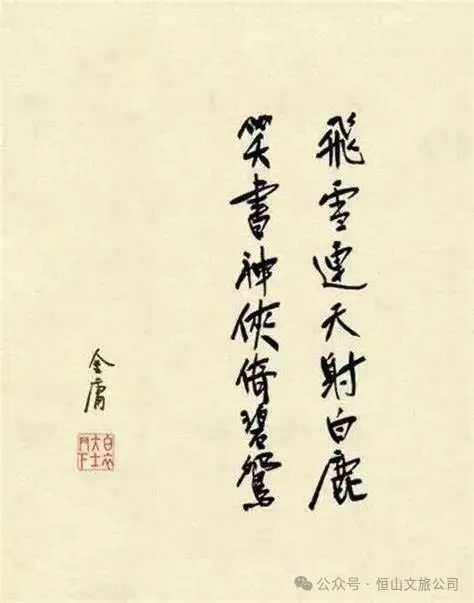
About Hengshan Mountain
According to the description of Hengshan Mountain in "Smiling Proud Wanderer," searching for martial arts traces here is a very interesting thing: Jin Yong's writing is a mix of reality and fiction, while those who search for these places tend to force connections and make assumptions, which is also quite interesting.
Tongyuan Valley — frequently appearing in "Smiling Proud Wanderer".
Tongyuan Valley is actually an empty valley, without any buildings, and certainly not the residence of Monk Bujie, the Six Immortals of Taoguo, and the two Mobei Bears after they joined Hengshan School, the "Hengshan Mountain Villa." If there had been some huts, this lonely empty valley would have been a good place for these people from all walks of life to cultivate peacefully.
However, the donkey hoofprints on Guolao Ridge do exist. On several large blue stones, bowl-sized hoof-shaped marks are clearly visible. In the legends of Hengshan Mountain itself, these are indeed the hoofprints left by Zhang Guolao riding his donkey backward, and this is also included in the Hengshan Mountain tour guide's commentary. In addition to Guolao Ridge and Tongyuan Valley, to further highlight the connection between Hengshan Mountain and this immortal, Hengshan Mountain Scenic Area has also erected a statue of Zhang Guolao riding his donkey backward in the parking lot at the foot of the mountain. Although these origins are unverifiable, they do not affect the frequent appearance of Tongyuan Valley, named after this immortal, in "Smiling Proud Wanderer".
Going halfway up the mountain, I searched for a wide place but couldn't find one. When Linghu Chong took over as the head of Hengshan School, people from all walks of life flocked to the mountain, and Huang Boliu and others considered that the Buddhist quiet place did not have wine or meat, so they brought their own "rations" of wine, food, and dishes. The book mentions: “At noon, hundreds of men carried chickens, ducks, cattle, sheep, wine, food, and noodles to the peak. Linghu Chong thought: ‘Jianxing Peak enshrines the White-robed Guanyin. As soon as I become the head, I will have fish and meat, pigs and sheep, which is disrespectful to the ancestors of Hengshan School.’ So he ordered these men to set up stoves and cook in the middle of the mountain. The aroma of wine and meat wafted up, causing the nuns to frown secretly.” At that time, the scene in the "middle of the mountain" must have been spectacular, with hundreds of martial arts figures drinking happily. Whether the place was spacious or not was not important.
Tianfeng Ridge — where Linghu Chong took over as the head of Hengshan School.
Regardless, this is where Linghu Chong took over as the head of Hengshan School. “After the crowd had finished lunch, they sat down in a circle on the open ground in front of the main temple of Jianxing Peak. Linghu Chong sat on the west side, and hundreds of female disciples stood behind him in order of seniority, waiting for the auspicious time to perform the ceremony of succession.” At the summit of this Jianxing Peak, hundreds or even thousands of people from all walks of life gathered, including the righteous leaders of the martial arts world such as Fangzheng from Shaolin and Chongxu from Wudang, and evil masters such as Jia Bu and Shangguan Yun, the two elders of the Sun and Moon Divine Sect. What a scene it must have been.
Especially those martial arts heroes who had just finished their meal, they must have been still belching and smelling of alcohol, some even picking their teeth with pine needles they had just pulled off. Amidst this alcoholic atmosphere, the Hengshan School nuns standing solemnly must have been "furrowing their brows secretly." The contrast created a somewhat playful atmosphere in such a serious occasion.
Besides Linghu Chong taking over as the head of the Hengshan School, Jianxing Peak also witnessed a tense and suffocating moment of crisis: Shaolin, Wudang, Kunlun, Emei, and Kongtong schools gathered here, preparing for a decisive battle with the Sun and Moon Divine Sect, which came to flatten Hengshan Mountain. Chongxu from Wudang even prepared 20,000 kilograms of explosives, vowing to blow "the old devil Ren" to smithereens. Luckily, it was a false alarm; otherwise, with the explosion of 20,000 kilograms of explosives, "Ren, the sect leader, would have been killed," and the "sacred mountain scenery would have been destroyed." More importantly, "Yingying would not have been spared." In that case, "Smiling Proud Wanderer" would have ended abruptly.
On Tianfeng Ridge, there is a scenic spot called Baiyun Cave, with the inscription "Baiyun Lingxu" at the entrance. Clouds and mist often gather here, making it a wonder of Hengshan Mountain. In "Smiling Proud Wanderer," the famous medicine Baiyun Bear Gall Pills of the Hengshan School may be related to it. Speaking of which, I recall something off-topic: In the Baidu "Smiling Proud Wanderer" forum, a careful netizen once questioned whether the Baiyun Bear Gall Pills, which must contain bear gall, contradicts the Hengshan School's principle of respecting Buddhism and not killing. Another netizen replied: There is a fundamental difference between medicinal use and gluttony and indiscriminate killing. It's better to save people first than to argue about whether to kill or not. This off-topic matter coincides with the philosophy highlighted in Jin Yong's book: At Jianxing Peak, when various schools gathered to fight the Sun and Moon Divine Sect, when the Shaolin abbot saw Chongxu about to use explosives to kill Ren Woxing, he first "chanted the Buddha's name: 'Amitabha!'" and then said, "My Buddha is compassionate. To save sentient beings, we must also eliminate evil and subdue demons. Killing one tyrant to save thousands or tens of thousands of people is an act of great compassion." - Buddhism is flexible and tolerant. To be overly pedantic and to reverse the priorities is itself a kind of delusion.
It should be noted that Mr. Jin Yong never visited Hengshan Mountain and Hanging Temple in his lifetime. His works vividly depict the scenery of Hanging Temple and Hengshan Mountain with his literary talent. However, Mr. Jin Yong did have a connection with Hengshan Mountain. On September 27, 2003 (World Tourism Day), when the Five Great Mountains Alliance was established, Jin Yong was appointed honorary leader of the alliance. At that time, Sun Haichuan, the head of the Hengshan School, witnessed the establishment of the Five Great Mountains Alliance with Mr. Jin Yong and invited Mr. Jin Yong to visit Hengshan Mountain. Mr. Jin Yong passed away on October 30, 2018.
The orchestra members visited the "Hanging Temple Xiazong" and loved the Hengshan Mountain cultural and creative products.
During the performance at the Hanging Temple, The SENZA a cappella group performed two shows at 2:20 PM and 3:10 PM respectively, each lasting about half an hour. The group of five members' tacit cooperation and wonderful performance left a memorable impression on the tourists. The event was filled with excitement and applause. During the performance, staff from the Hengshan Mountain Tourism Company presented the orchestra members with Hengshan Mountain cultural and creative products—Li Bai's magnificent folding fan, which was well-received by the orchestra members. They frequently opened the folding fan during the performance to show the tourists this cultural and creative product with a strong Hengshan Mountain element. After the performance, the staff from the Hengshan Mountain Tourism Company presented each member of the five-person team with a Li Bai magnificent folding fan.
During the event, the members of the orchestra and relevant staff also visited the Hanging Temple to explore the "Hanging Temple Xiazong." The beautiful melodies of classic songs such as "A Laugh from the Sea" echoed repeatedly in the Hanging Temple. "A Laugh from the Sea" is the theme song of "Smiling Proud Wanderer." With its majestic and unrestrained melody and free and easy lyrics, it has become a classic in martial arts music. SENZA A Cappella With their powerful and passionate singing, they vividly displayed the chivalrous spirit of this song. When the familiar melody sounded in the valley, the audience seemed to instantly travel to the world of martial arts, full of swords and shadows and vengeance, wandering in the rivers and lakes with Linghu Chong, feeling his ambition and unrestrained life.
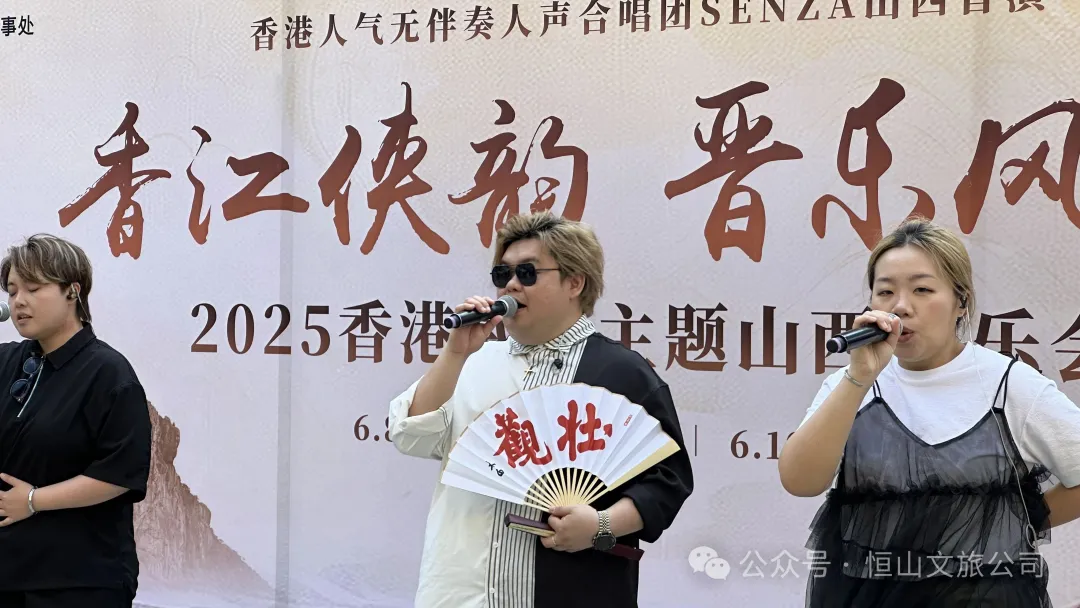
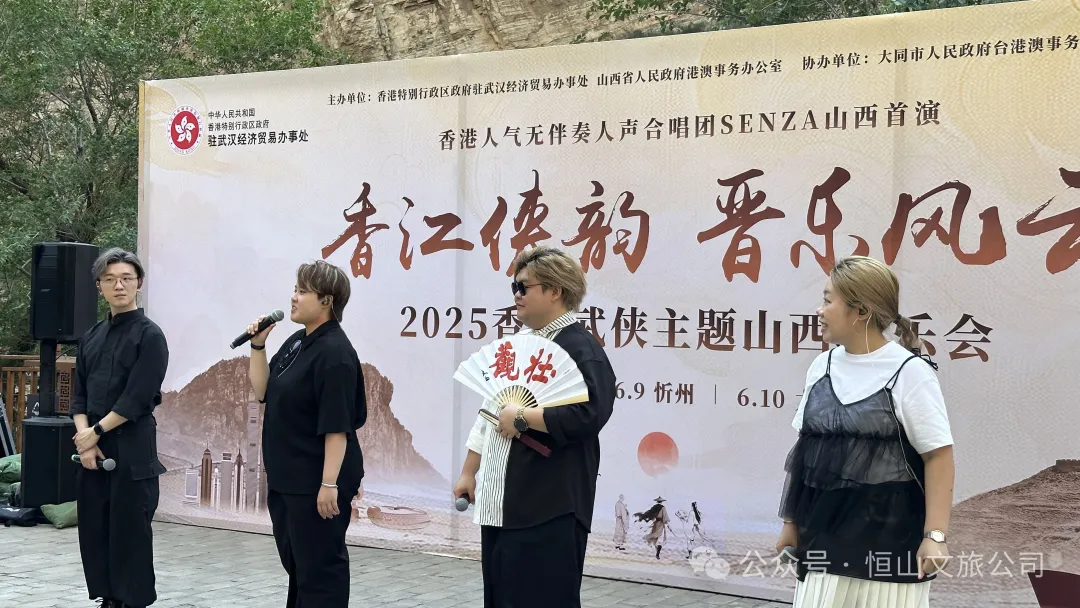
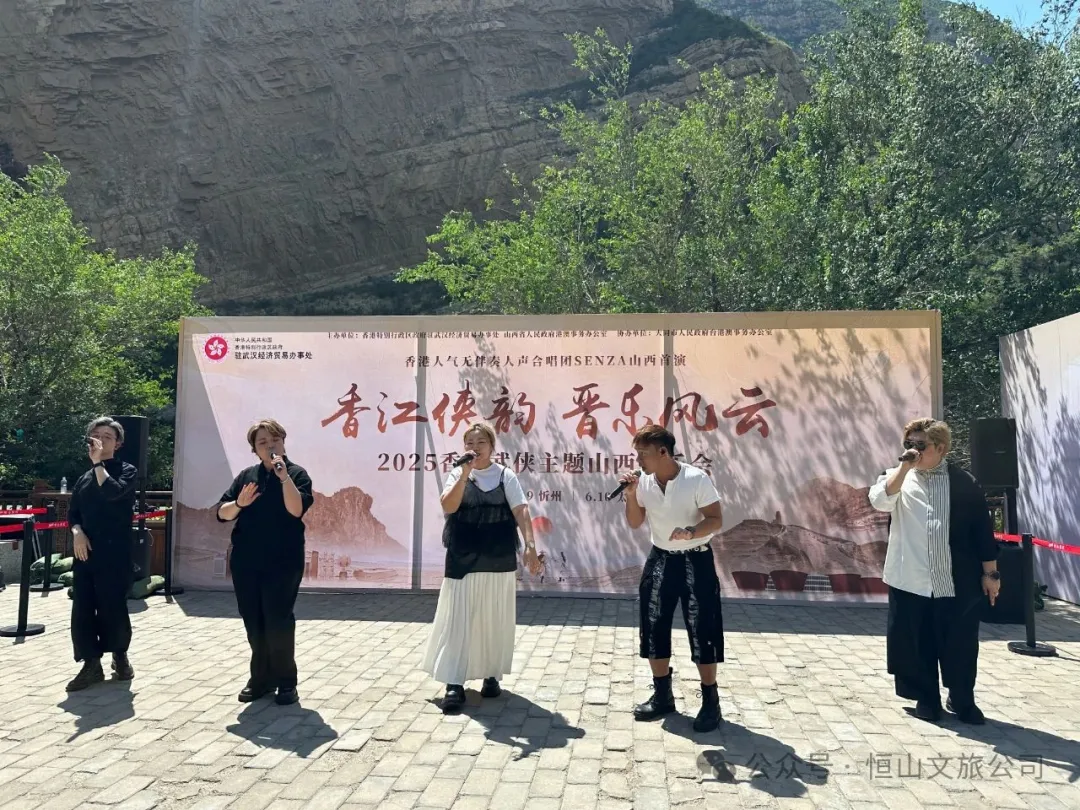
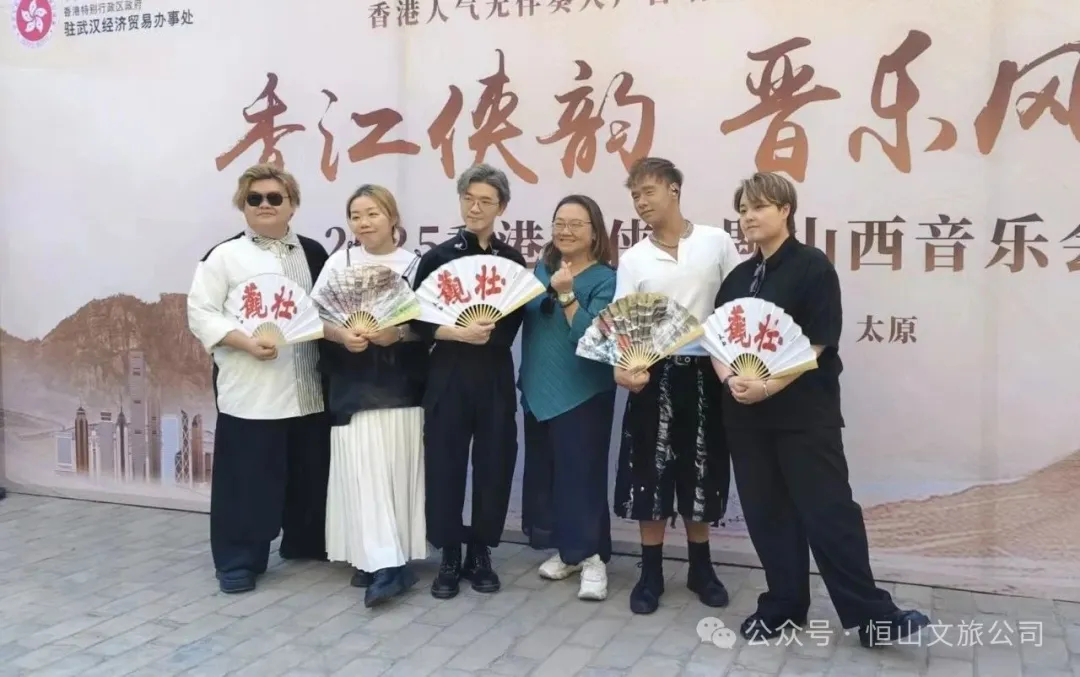
This performance held at the Hanging Temple was not only a musical feast but also an in-depth exchange and collision between the cultures of Hong Kong and Shanxi. Hong Kong, as an international metropolis, possesses diverse and rich musical culture; while Shanxi, as one of the important cradles of Chinese civilization, has a long history and profound cultural heritage. SENZA A Cappella This performance perfectly combined Hong Kong's modern musical elements with Shanxi's traditional culture, bringing a brand-new cultural experience to the audience.
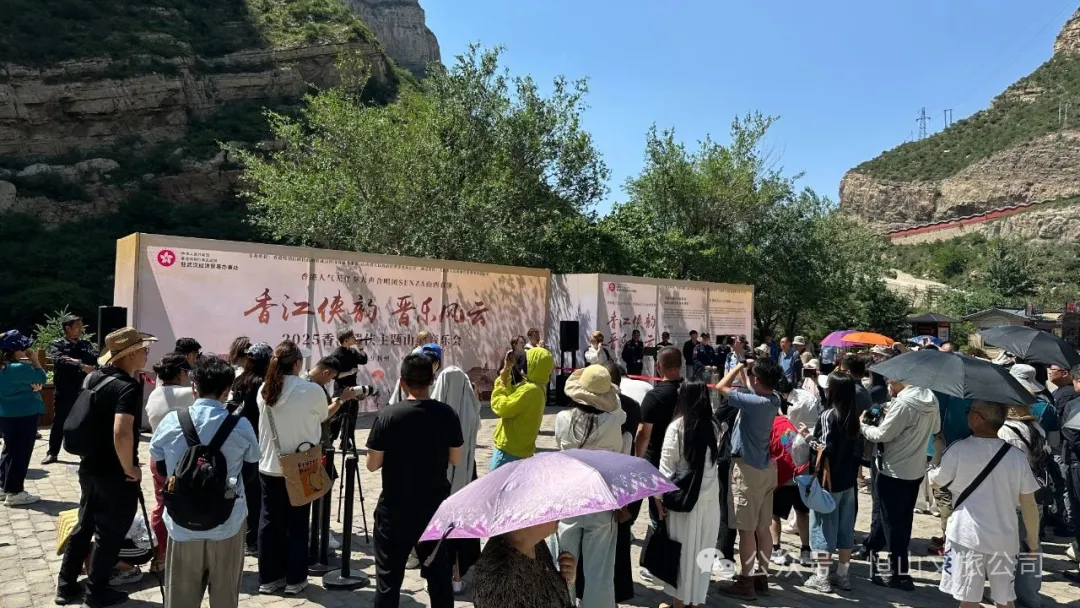
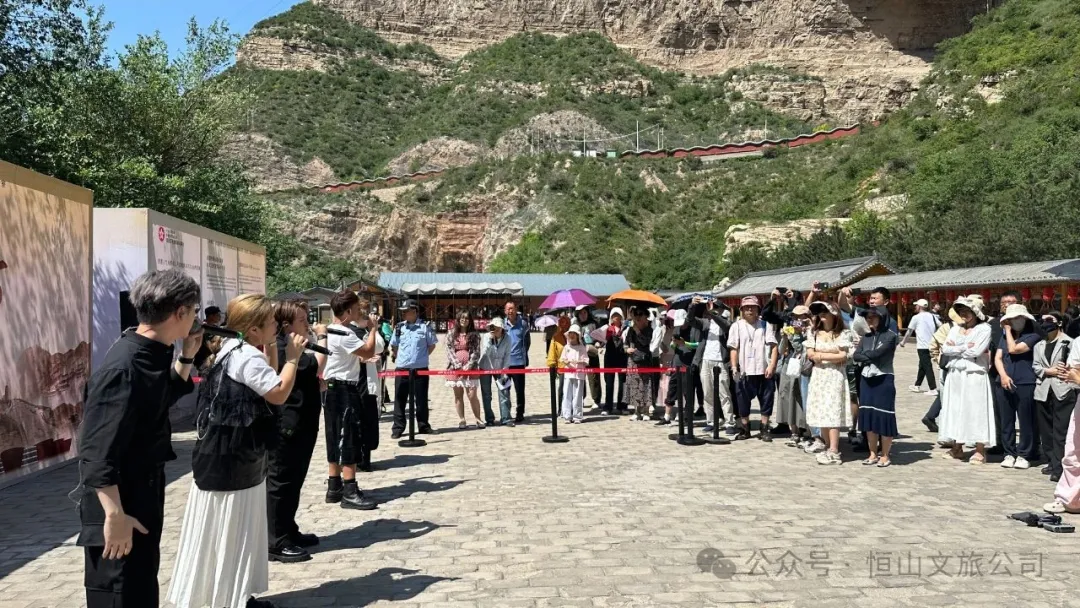
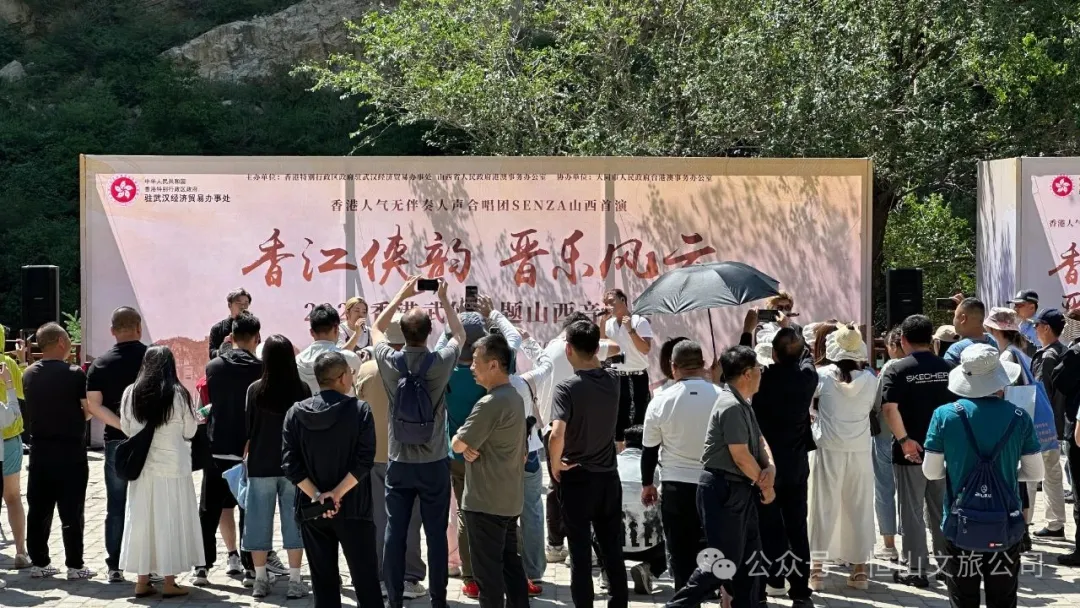
Through this performance, the audience appreciated the unique charm of the Hong Kong a cappella group and felt the vitality and innovation of Hong Kong's music culture. At the same time, Hong Kong artists gained a deeper understanding and knowledge of Shanxi's traditional culture, injecting new inspiration and elements into their musical creations. This cross-regional cultural exchange not only enriched the spiritual and cultural lives of the people of both places but also made a positive contribution to promoting the inheritance and development of Chinese culture.
This event was also a themed event jointly held by the Hong Kong Special Administrative Region Government's Economic and Trade Office in Wuhan and the Shanxi Provincial People's Government's Hong Kong and Macao Affairs Office for the first time at the Hanging Temple. It is also understood that on the 9th and 10th, the organizers will also hold performances at the Yanmen Pass, the ancient city of Xinzhou, and the Taiyuan Museum
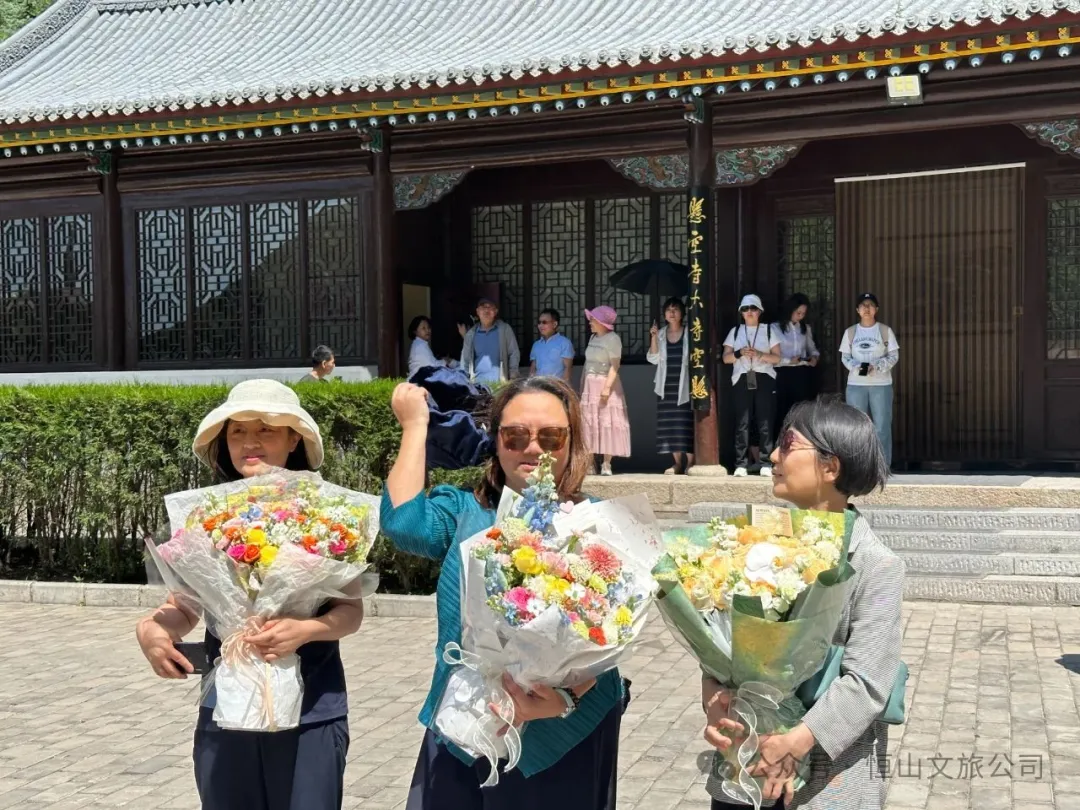
( "Smiling, Proud Wanderer" Hengshan School's Wuxia Legacy: The Connection Between a Mountain and the Jianghu Part of the content comes from Guo Bin's article in Shanxi Daily. Sincere thanks! )
Keywords:
Related News
Tourists visiting Hengshan Mountain, in addition to appreciating the magnificent natural landscape of Hengshan Mountain, are more interested in learning about the profound cultural heritage of the Northern Mountain.
Republic of China hemp mat treasure | Guiyou (1933) Deng Hengyue Ji (with poems and texts)
In today's ancient city of Hunyuan, when discussing well-preserved ancient residences, one must mention the "Ma Family Courtyard." The original owner, Ma Xi Zhen, has also gained attention, as if the person is known because of their residence.


